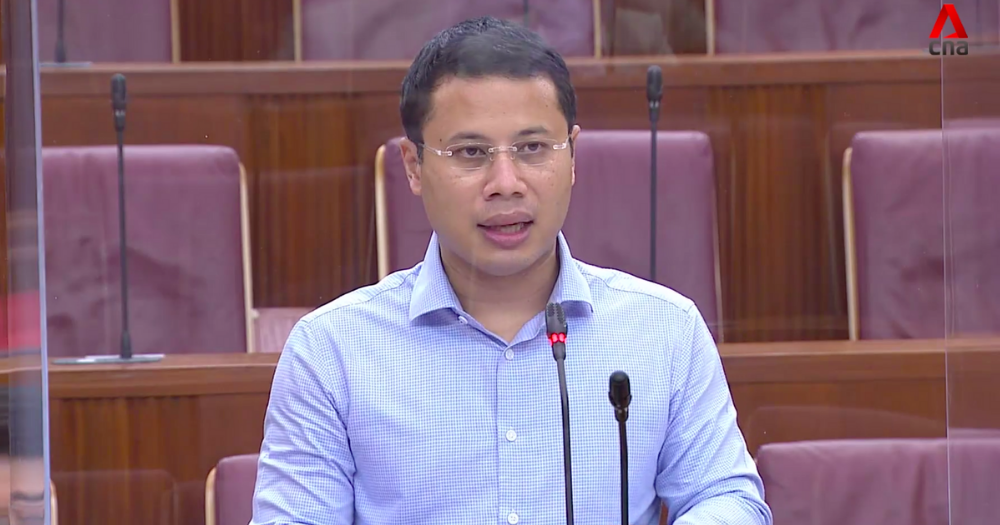Singaporeans need to renew their "social compact", and work toward turning constructive dialogue into real actions.
This was said by Minister for National Development Desmond Lee in his speech in Parliament on Friday (Sep. 4).
Renewal of social compact
Lee elaborated an issue that a number of other Members of Parliament (MPs) spoke about throughout the week, the social impact of Covid-19, and its unequal impact on different segments of society, affecting those in those in the hardest-hit industries, older workers, and essential workers the most.
"This virus has shown us, quite starkly, that 'none of us is safe, until all of us are safe'," he said.
The broader point, he added, is that our well-being depends on one another, and harkened back to President Halimah Yacob's address to Parliament on Aug. 24, during which she said that the new generation of Singaporeans must "forge their own compact".
Lee said that Singaporeans must must renew the societal compact.
The government will "seriously" study suggestions that have been floated for how to support Singaporeans, such as introducing a minimum wage or unemployment insurance, as well as existing frameworks such as the Progressive Wage Model, Workfare, and increased support for lifelong learning and job matching.
In addition, he highlighted the importance of having an ecosystem of interpersonal and community support, more than just government intervention.
Engage with each other
In order to work toward this social compact, Lee emphasised the importance of engaging with one another, and turning the dialogue into concrete action.
"Our democracy is maturing," he said. "We have seen, and will continue to see a greater contestation of views and ideas — here in Parliament, in civil society, in online discourse."
He said that, while people's opinions may differ on how to best take things forward, "we cannot afford to allow a diversity in views to lead to distrust or polarisation."
Lee celebrated the diversity of the new Parliament, saying that it "reflects Singapore’s diversity", as well as the diverse range of concerns they have raised over the past few days:
"Across political affiliations, Members hail from different backgrounds. We have different gender, ethnicities and faiths, studied in different schools, worked in different fields."
Lee acknowledged that sometimes, in Parliament, emotions may run high, and MPs may be "tempted to push our point to the fullest".
However, he said:
"As long as we commit to putting Singapore’s interests before our own, it will be possible to find common ground and move forward together.
This will enable us to retain and harness our diversity as a strength, and avoid the partisan division and polarisation that we've seen in other countries take root here."
Lee also added that this constructive dialogue and engagement extends beyond Parliament, to all Singaporeans.
One example he highlighted were the Emerging Stronger Conversations (ESCs), which are meant to be "platforms to engage Singaporeans from all walks of life, in honest and respectful conversation about the kind of Singapore that we want to build together".
He encouraged all Singaporeans to participate in the ESCs, in order to reflect on the collective Covid-19 experience, and to participate in "this important work of forging a shared consensus".
Turn dialogue into action
Lee continued, emphasising the importance of the conversations learning to action. This, he said, is the "heart" of Singapore Together.
He highlighted an area in which collective action is needed, building a greener and more environmentally sustainable Singapore.
He called environmental issues an "existential challenge", because Singapore is especially vulnerable to consequences such as rising sea levels, and increasing temperatures, and that "there is no vaccine for climate change".
Lee also spoke about the importance of a more resilient economy, such as industries becoming more energy-efficient and using more renewable energy.
One way to turn conversations into actions, he said, is through the Singapore Together Action Networks, and he highlighted a new one: the Beyond Covid-19 Taskforce, which is meant to re-imagine and develop a social sector that can effectively meet emerging social needs, post-pandemic.
Immediate challenges and looking forward
Lee also addressed the issue of how to focus attention on immediate challenges, while also preparing ourselves for the long-term future.
The government’s immediate focus, Lee said, is to navigate Singapore through the pandemic and the serious economic downturn, such as the Covid-19 measures that the government has drawn from the reserves to fund.
However, he also recognised, together with other MPs, the need to think longer-term:
"We cannot simply hunker down and wait for things to get better. Instead, we must prepare ourselves now so that we can capture new opportunities when they come."
"We are not starting from scratch," said Lee, "but are building on strong pillars and steady improvements over the years."
Totally unrelated but follow and listen to our podcast here
Top photo via CNA.
If you like what you read, follow us on Facebook, Instagram, Twitter and Telegram to get the latest updates.
